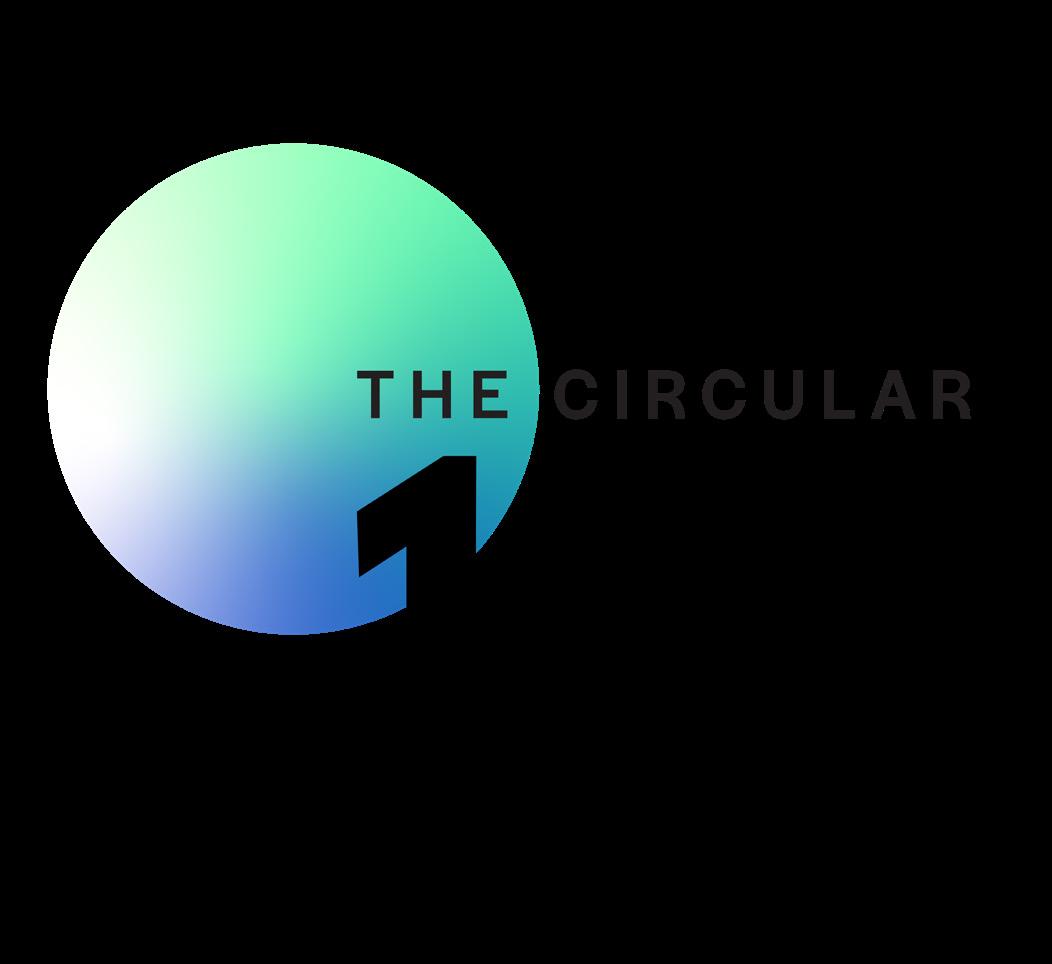
SPECIAL EDITION | THE CIRCULAR 100 CLASS OF 2025–2026
Celebrating 100 leaders driving measurable impact across the UK’s circular economy
Featuring exclusive interviews, behind-the-scenes insights, and the full Class of 2025–2026 list.
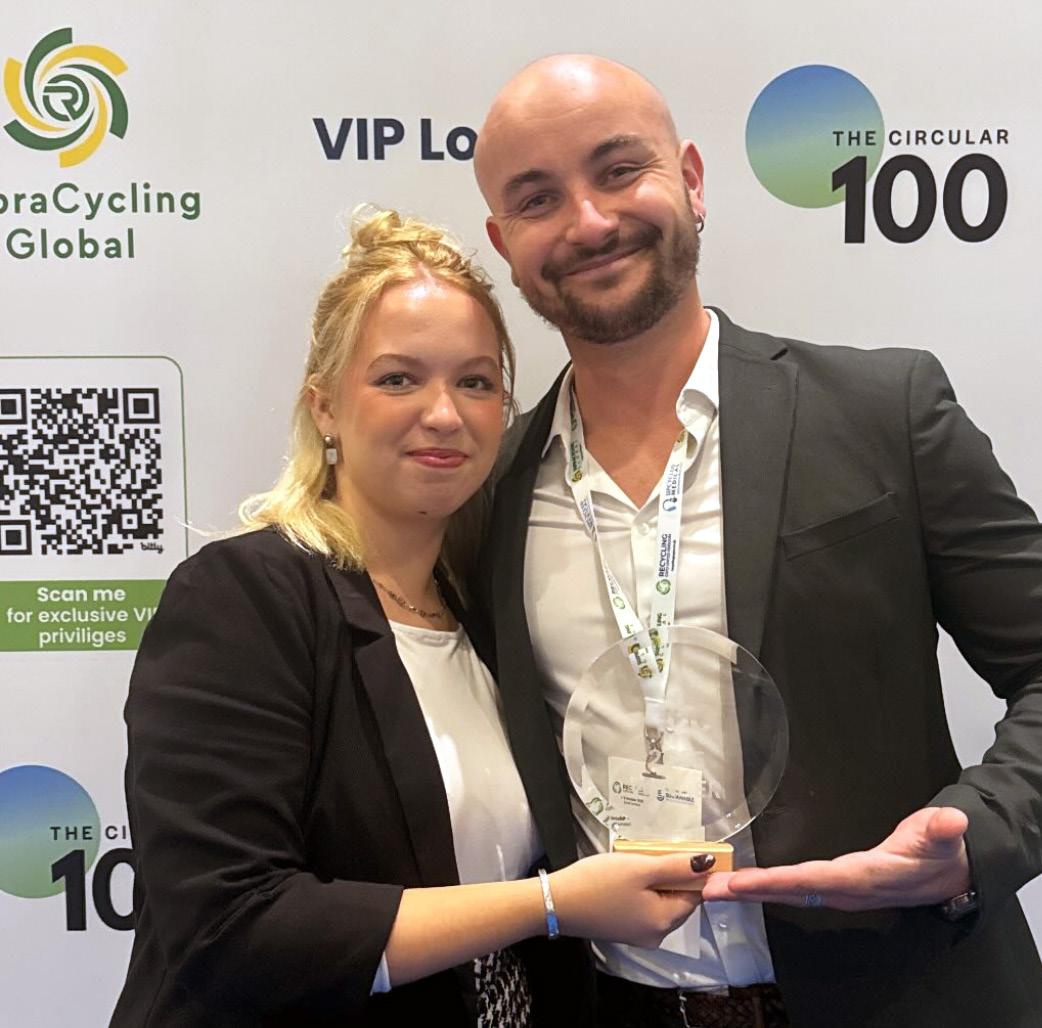



SPECIAL EDITION | THE CIRCULAR 100 CLASS OF 2025–2026
Celebrating 100 leaders driving measurable impact across the UK’s circular economy
Featuring exclusive interviews, behind-the-scenes insights, and the full Class of 2025–2026 list.


The Circular 100 celebrates the individuals driving measurable change across the UK’s circular economy, from retail and construction to manufacturing, technology, and waste management. These are the innovators, strategists, and practitioners rethinking systems, reshaping industries, and proving that sustainability and business success go hand in hand.
If you were lucky enough to attend The Recycling Expo 2025, you may have met some of our Circular 100 in person as they joined us to collect their awards. We took the opportunity to speak with them about their work, achievements, and ambitions for the future. Their insights, captured throughout this edition, reflect the breadth, creativity, and purpose that define today’s circular economy movement.
This is just the start. With more editions, deeper interviews, and exclusive events to come, The Circular 100 will continue to spotlight the people and ideas shaping a more sustainable future.
Thank you for joining us on this journey and for being part of the conversation


Laura Lawrance
Strategic Marketing & Partnerships Manager The Recycling Expo
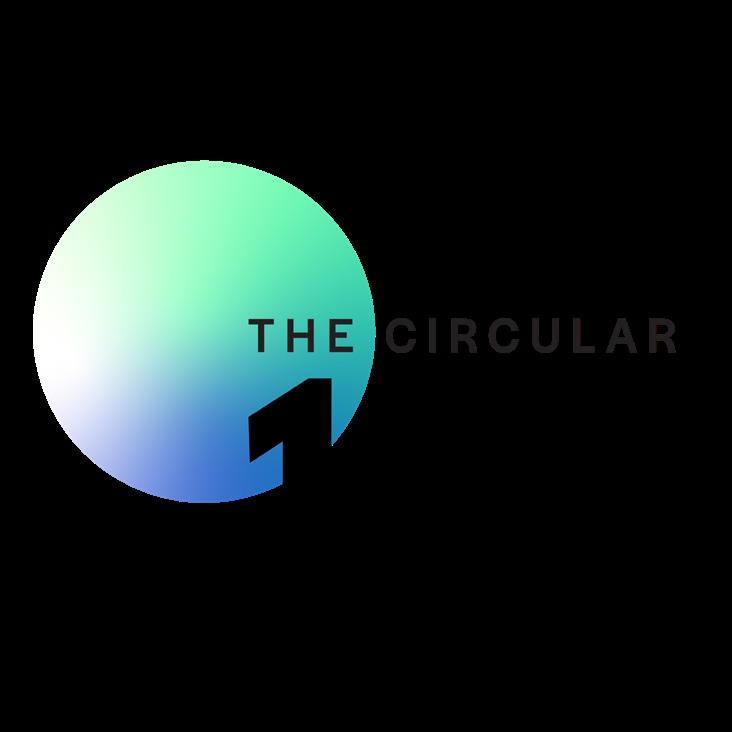
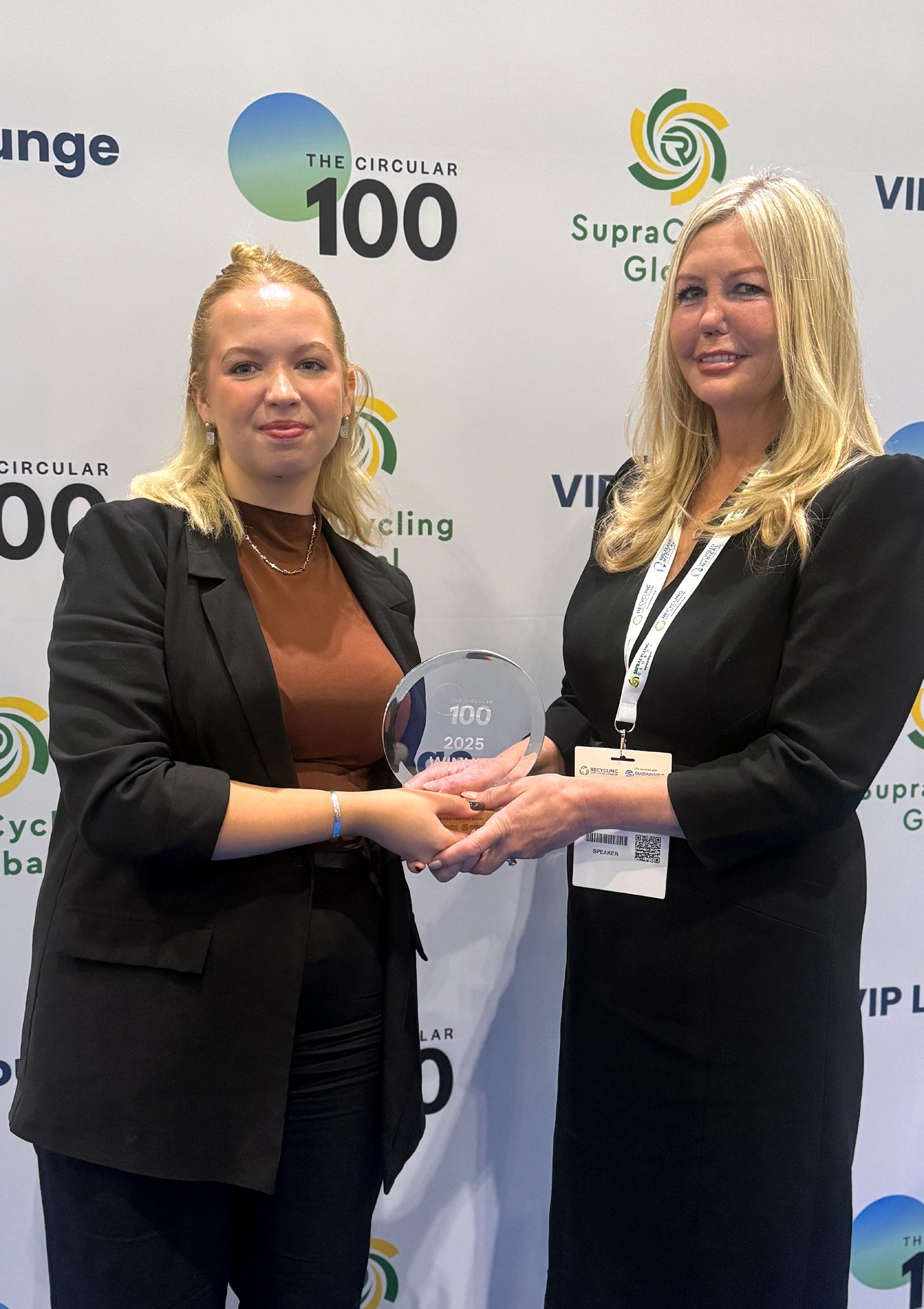
For Linda Ball, sustainability isn’t a choice - it’s a responsibility that should sit at the heart of every business model. As the Founder of UpCycled Medical, she’s built her career around proving that waste doesn’t have to be inevitable, it can be repurposed, redesigned, and reintroduced into the economy with value.
“You know, sustainability is supposed to be something everyone contributes to,” she explained. “If we don’t all do something, we’re going to have a real problem with our environment.”
That ethos has shaped her company’s approach to manufacturing - focusing on collecting waste materials and turning them into new medical-grade products. Her team ensures that nothing usable is discarded. “I never throw anything away that can be recycled,” she adds.
Yet Ball is clear-eyed about the challenges that still exist. One of the biggest obstacles, she says, lies in product design. “Too many products are made with three or more types of plastic,” she points out. “You can’t easily
separate or recycle them, so we’re designing failure into the system.”
Her belief is simple but uncompromising: circularity begins at the design stage. By eliminating unnecessary materials and rethinking how products are built, industries can close the loop instead of feeding the waste stream.
Sustainability is supposed to be something everyone contributes to.
For Adam Read, sustainability isn’t an aspiration - it’s the foundation of business survival. “Any business that isn’t sustainable won’t be here in five years’ time,” he says. “You need to deliver for your partners, your customers, and your employees. Without sustainability, you don’t have a business.”
That conviction is central to how Read leads at SUEZ, one of the UK’s most influential resource management and circular economy organisations. Under his direction, the company has embedded ten sustainability principles across every site and team, ensuring that environmental responsibility is more than a statement - it’s an operational discipline.
“These principles guide everything from recycling and paper segregation to reducing our own material use and improving biodiversity on-site,” he explains. “It’s about consistent, practical actions that add up across hundreds of locations.”
Read believes the industry’s future depends on embedding sustainability into culture
- not just compliance. His leadership approach combines technical innovation with collaboration, encouraging employees to take ownership of environmental outcomes in their day-to-day roles.
While SUEZ continues to evolve alongside new legislation and public expectations, Read’s focus remains steady: to demonstrate that sustainable operations are not only possible, but profitable and essential. His message to business leaders is direct - adapt, collaborate, and invest in systems that respect finite resources.
At its core, his philosophy reflects the maturity of the sector itself: sustainability is no longer a campaign or a department. It’s the measure of whether a business deserves to exist at all.
Any business that isn’t sustainable won’t be here in five years’ time.
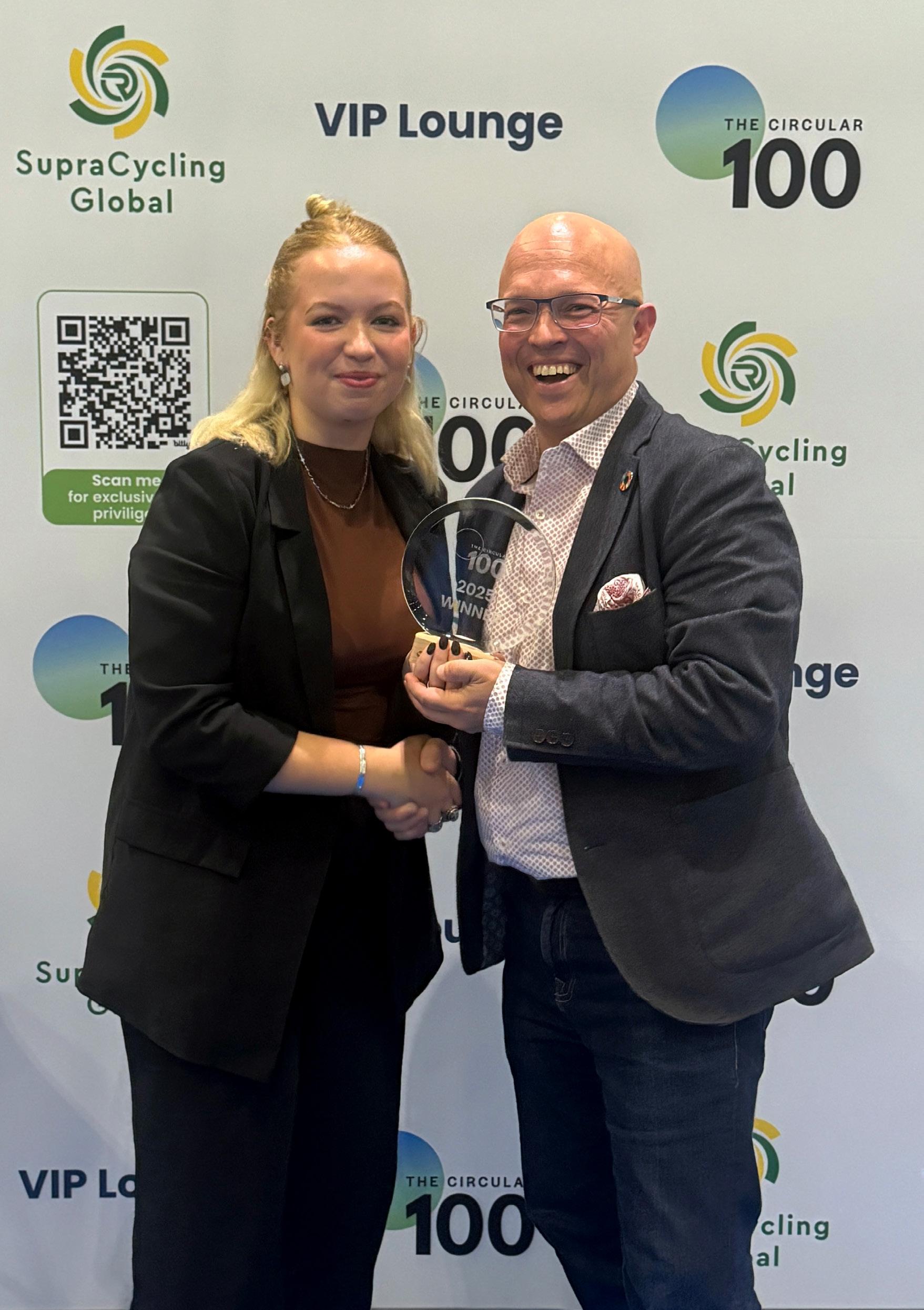
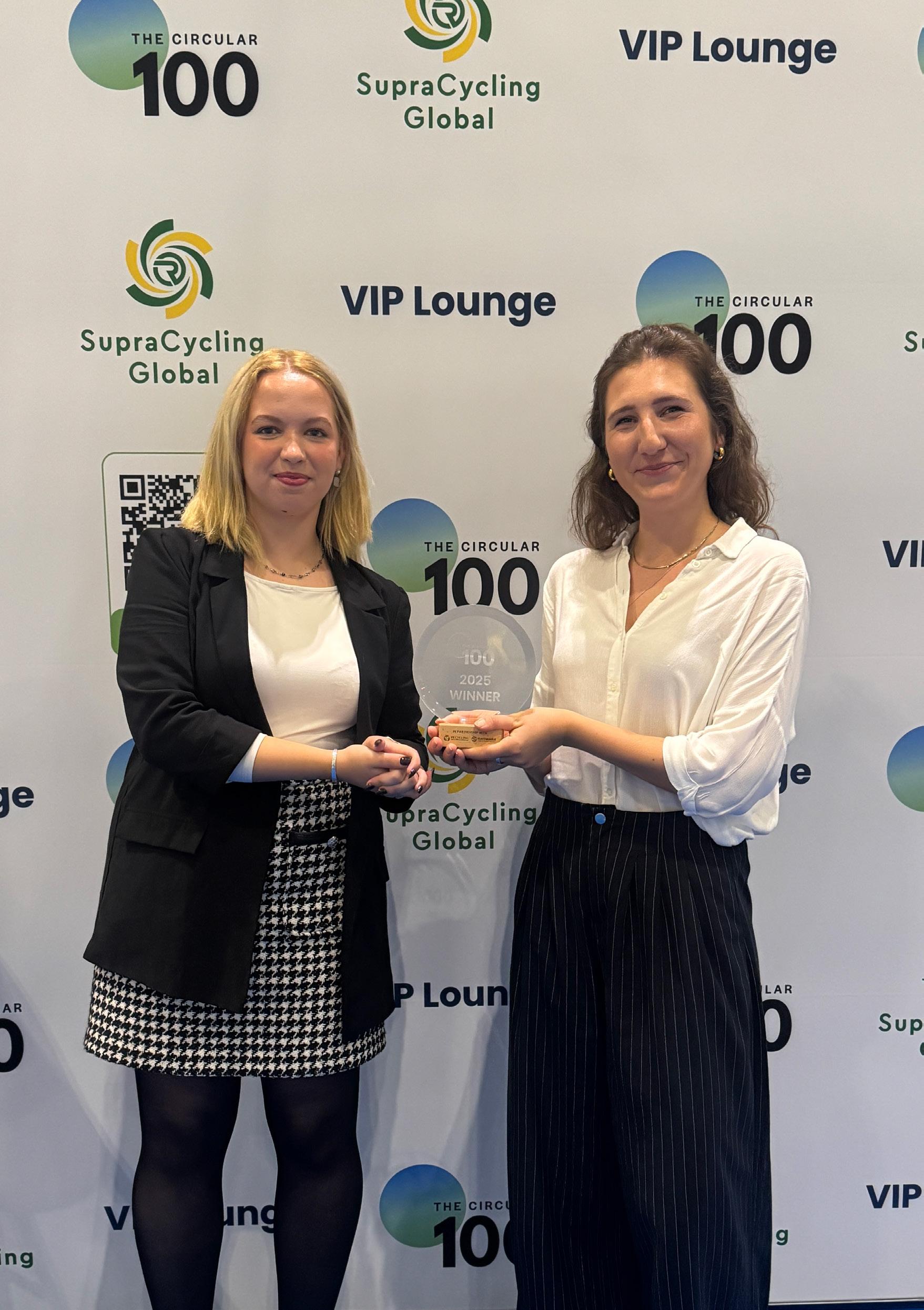
For Daisy Thompson, sustainability is most powerful when it moves from strategy to tangible action - when it changes behaviours, creates partnerships, and delivers results. “It’s those tangible outputs I’m proud of,” she says, reflecting on Nestlé’s cross-industry initiative Podback, the UK’s first coffee pod recycling scheme.
Developed in partnership with other leading brands, Podback provides consumers with simple ways to return used pods through kerbside collections and drop-off points. “It’s been great seeing some of our sales colleagues - people who were previously far removed from sustainability - now working hands-on with retailers to implement the scheme,” Thompson explains. “They’ve gone through sustainability training, understand the principles, and are bringing them to life in their everyday roles.”
Beyond consumer recycling, Thompson and her team are helping shape broader change. “We’ve worked with Podback as a blueprint for local authorities - showing what effective collection looks like,” she says. “The real challenge lies in recycling infrastructure and
capacity, and not just that, but ensuring there’s a good-quality end market for the material too.”
That systemic perspective - from collection through to end use - underpins Nestlé’s wider work on packaging innovation and material circularity. “Plastics remain one of the toughest issues,” she acknowledges. “Flexible plastics are the right material for many products, but they’re complex to recycle. We’re investing heavily in innovation and collaboration to close that loop.”
For Thompson, the message is clear:
“Sustainability succeeds when it connects people, systems, and outcomes - transforming good intentions into measurable, lasting impact.”
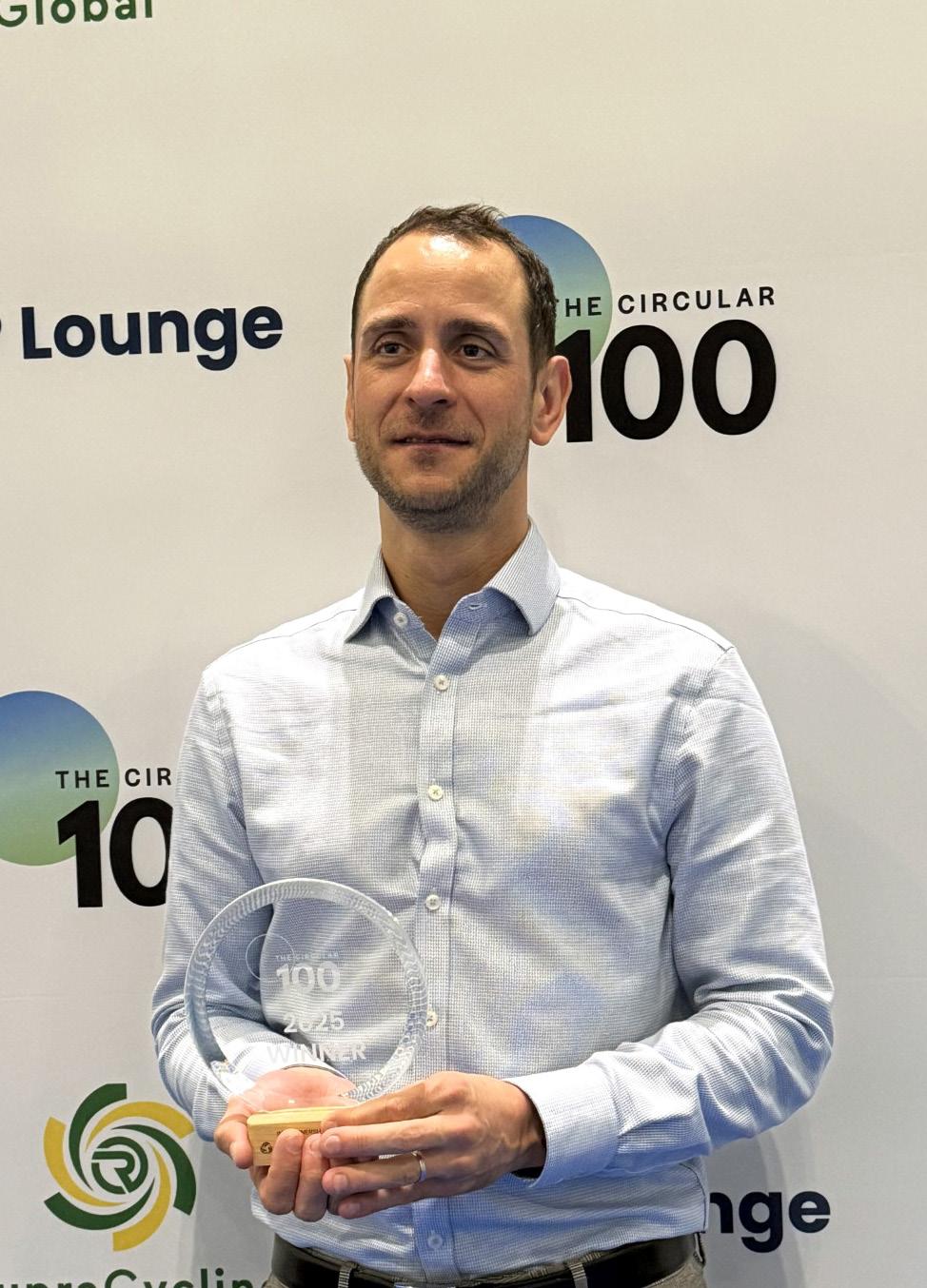
For Florian Vernay, sustainability isn’t just about ethics, it’s a strategic framework for businesses to thrive in a resource constrained world. “There are four reasons sustainability should be at the forefront of any successful business,” he explains. “First, it drives efficiency by challenging the externalities of every part of the business. Second, it makes customers feel good. Third, it future-proofs the business, building resilience in a more environmentally constrained world. And fourth, it builds trust, with the stakeholders essential for a business to thrive.”
As Head of Communications, Corporate Affairs and Sustainability within Unilever’s Home Care Business Group, Vernay has helped deliver one of the business’ most ambitious global shifts: increasing the use of recycled plastic in packaging to record levels. “It’s a huge endeavour,” he says. “We’re implementing it across dozens and dozens of countries, each with different regulations, packaging types, and waste management systems, but it’s something we’re truly proud of.”
He is candid about the scale of the challenge that still remains. “Our industry relies heavily on plastic, it’s efficient and cost-effective. The challenge is finding other materials that perform just as well, at the same price, while improving collection and sorting systems worldwide for these materials.”
Vernay describes The Recycling Expo as a rare opportunity to see that ecosystem working together in real time. “What I like about this event is the presence of the whole value chain from packaging producers to sorters and collectors,” he says. “We don’t just need to talk about collaboration - we need to do it. And this expo is a place where that starts.” His advice to the next generation of sustainability professionals is pragmatic:
Study sustainability, yes, it is the future - but pair it with business or policy. Those are the engines that will drive the next wave of sustainable change.
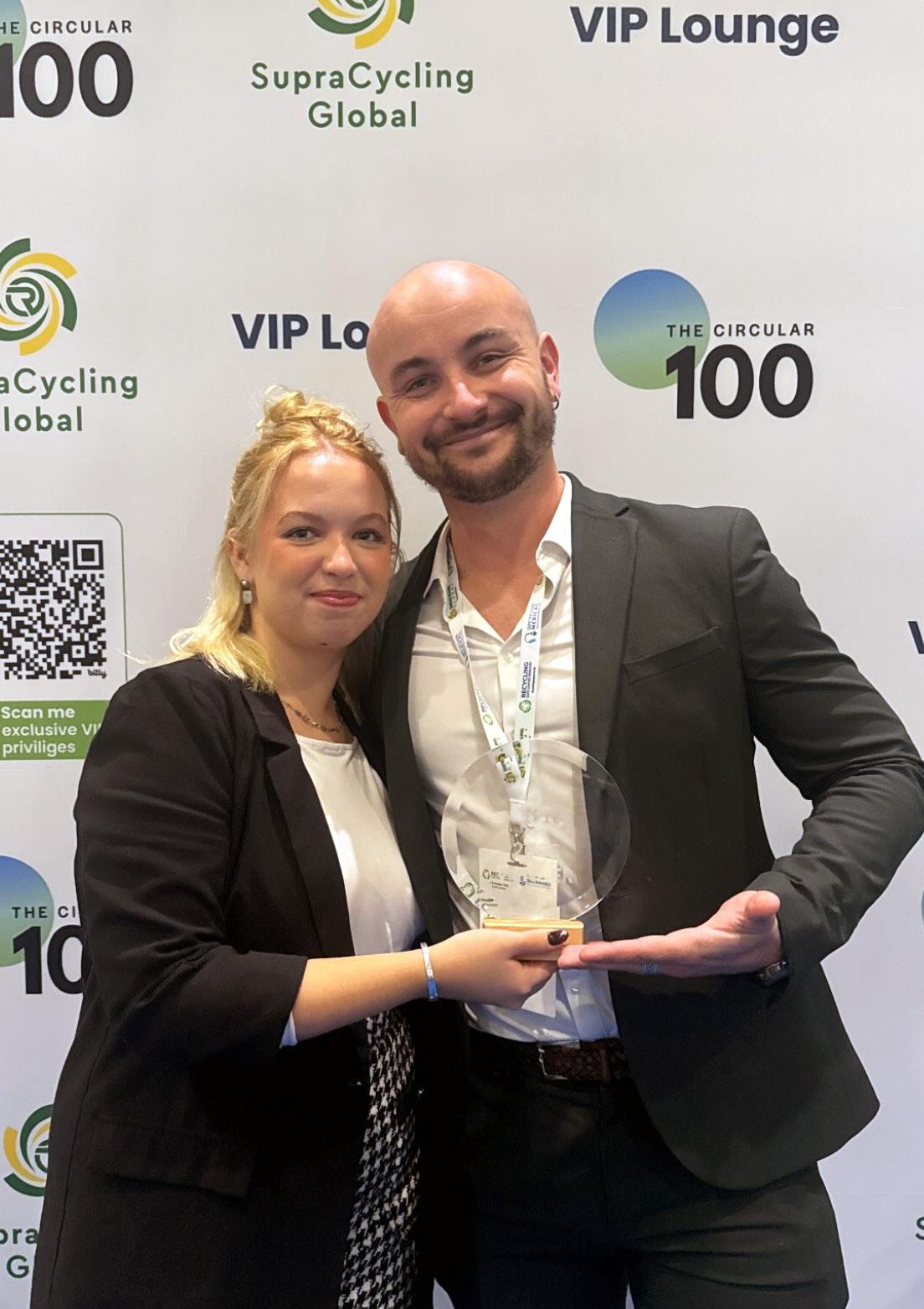

For Matthieu Sabin, sustainability isn’t an add-on to business strategy - it is the strategy. “Sustainability has to be thought about like the meaning of the word itself,” he says. “It means stability - that we can keep the business going for the long term, using resources without exhausting them. It’s the future of every single company.”
That long-term view drives Sabin’s work at HP, where he helped create HP Renew - the company’s circular-services business unit. The initiative helps clients reduce their carbon footprint by re-using materials, refurbishing equipment, and designing waste out of the system. “We were among the first major IT players to dedicate an entire business unit to sustainability,” he explains. “Everything should be rerouted back into the business to ensure continuity and stability across the industry. Hopefully, others will follow.”
Sabin acknowledges that the biggest challenge facing technology manufacturers is access to end-of-use materials. Devices and components are dispersed globally, making retrieval and reuse complex. “We need a world where we can easily recover those materials,
with regulatory support to help industries and clients manage this,” he says. “Accessibility to end-of-use devices is the key to circularity.”
Speaking at The Recycling Expo, Sabin described the event as “a great platform connecting stakeholders who might never meet otherwise.” The show, he says, has already generated new partnerships and conversations. “It’s an ideal networking event, the real value is the connections and the shared ambition.”
His advice to the next generation of sustainability professionals is simple but steadfast:
Keep your faith in the mission. The waves may be high, but this movement won’t fade - it’s the future of business and our ecosystem.
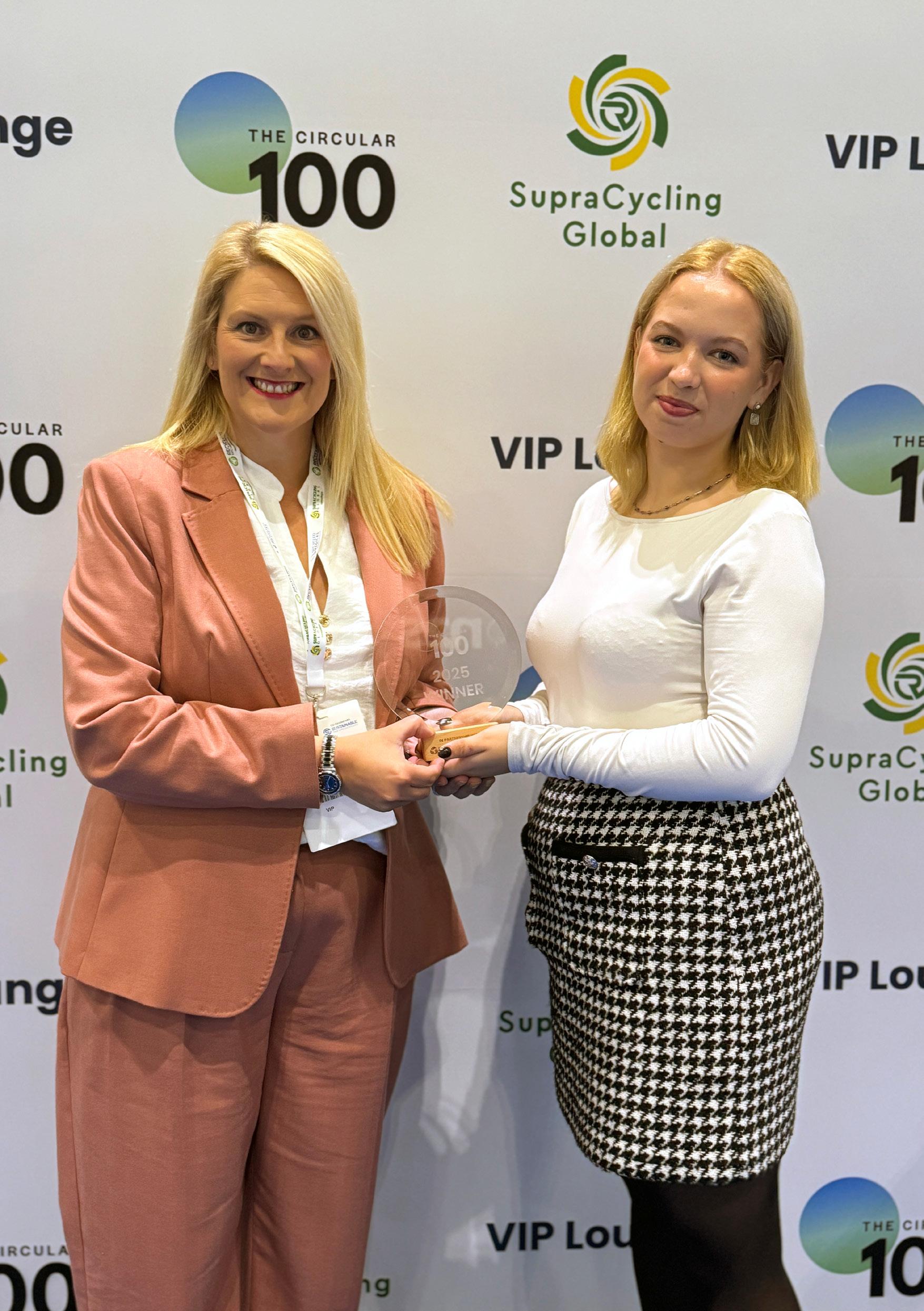
For Nicola Jones, sustainability is both a responsibility and an act of stewardship.
“Sustainability is all around us,” she says. “Everything we do today that can positively impact future generations is a win. It’s about preserving the future for those who come after us.”
As Steel Packaging Recycling Manager at Tata Steel UK, Jones plays a part in one of the most significant industrial transformations currently underway in Britain, the company’s transition to low-CO ² steel production. “I can’t claim to be at the forefront,” she says modestly, “but I’m incredibly proud to be part of a project that will reduce our CO ² emissions by around 90%. It’s a huge milestone for the wider UK business.”
Jones recognises the challenges the sector faces in decarbonising while staying commercially viable. “For any industry, cost is a major factor,” she explains. “We all want to change, we all want to reach net zero, but it requires investment across the entire value chain. It doesn’t always sell or make you money, but it’s necessary.”
She sees events like The Recycling Expo as essential to driving collaboration and
awareness. “We all need to work together toward one vision,” she says. “Bringing everyone into the same room — from waste management to corporate leaders — helps people find the information, the contacts, and the inspiration they need to act.”
Her advice for those beginning their sustainability journey is characteristically upbeat:
Say yes, and worry about it afterwards. Every positive action, no matter how small, is a step in the right direction. The important thing is to start.
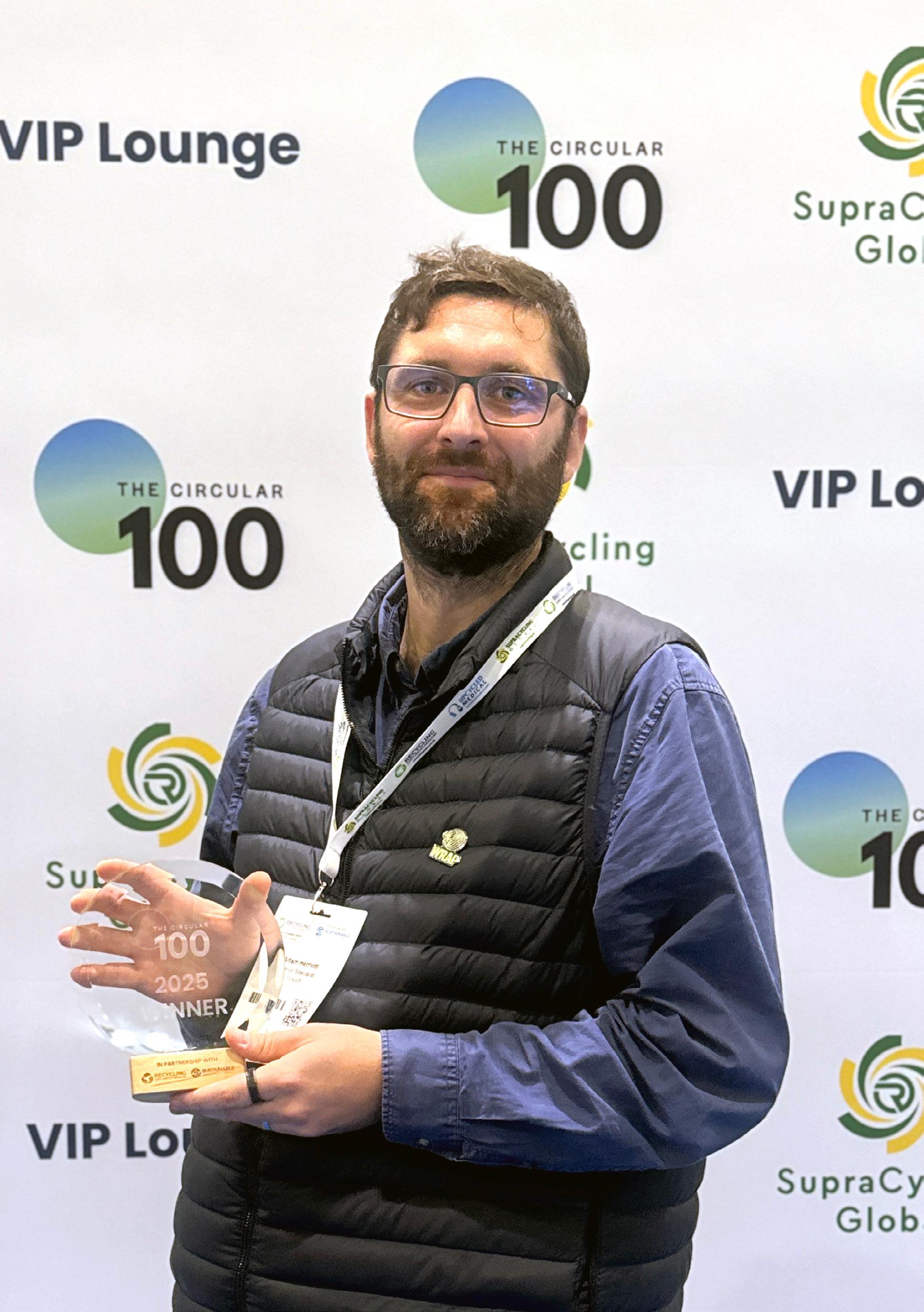
For Adam Herriott, embedding sustainability and circularity into a business model isn’t just good ethics - it’s smart economics. “Research shows that companies with sustainability and the circular economy at the forefront of their business are the ones growing faster,” he explains. “Those that don’t are essentially leaving money on the table.”
At WRAP, Herriott’s role is to help businesses, local authorities, and retailers bring circular thinking from concept to action. “It’s not just about what I’ve implemented personally,” he says modestly. “It’s about the wider change we’re driving - supporting organisations to put the circular economy at the forefront of their planning and decision-making.”
That involves working across sectors on packaging, materials, and infrastructure, areas where WRAP’s research and guidance often set national direction. Yet Herriott acknowledges that the journey isn’t without obstacles. “The biggest challenge is the financial one,” he admits. “The economics of plastic recycling, for example, are tough. Many businesses are hesitant to invest today, even when it means significant savings and resilience in the
future. Overcoming that short-term mindset is crucial.”
He describes The Recycling Expo as a refreshing space for in-person dialogue. “It’s been great catching up with people face to face — and hearing perspectives I haven’t come across at other conferences recently. There’s real value in those exchanges.”
To those just starting their sustainability careers, Herriott offers grounded advice:
“Don’t pigeonhole yourself. Sustainability isn’t just recycling - it’s AI, behaviour change, finance, logistics, policy. There’s so much to explore, and that’s what makes this industry so exciting.”
For Sarah Cairns, sustainability isn’t a side initiative - it’s central to planning for the future.
“It’s one of the most important things we need to think about now - for the future of the business,” she says. “At Boots, we’re constantly looking ahead, identifying the issues we need to face, and ensuring we’re doing the right thing from both an ethical and operational perspective. Our suppliers expect it, and so do our customers.”
Cairns oversees some of Boots’ most visible and impactful environmental changes. “We’re now sending less than one percent of waste to landfill,” she notes. “The goal is zero-to-landfill across the board within the next 12 months.”
At the same time, the retailer has introduced the Recycle at Boots scheme, dedicated boxes in around 800 stores that allow customers to return hard-to-recycle packaging, from cosmetics containers to medication blister packs. “It’s something we’re very proud of,” she says.
The retail sector faces unique challenges, she acknowledges, especially when balancing sustainability with commercial pressures.
“In retail, sales will always be the immediate

priority. The challenge is ensuring sustainability has equal weight, allocating the resources, time, and energy to make progress,” she explains. “It’s also about consistency. Our colleagues are busy, and we need to keep sustainability front of mind in every store.”
Cairns believes The Recycling Expo plays an important role in advancing that dialogue.
“It’s great to get everyone talking and sharing solutions,” she says. “If we can bring more waste contractors and suppliers into the room next time, the conversation will be even stronger.”
Her advice for those starting out in sustainability is characteristically honest:
Keep at it. It’s hard work to engage a whole business, but forward-thinking ideas do make a difference. Stay persistent — it’s worth it.
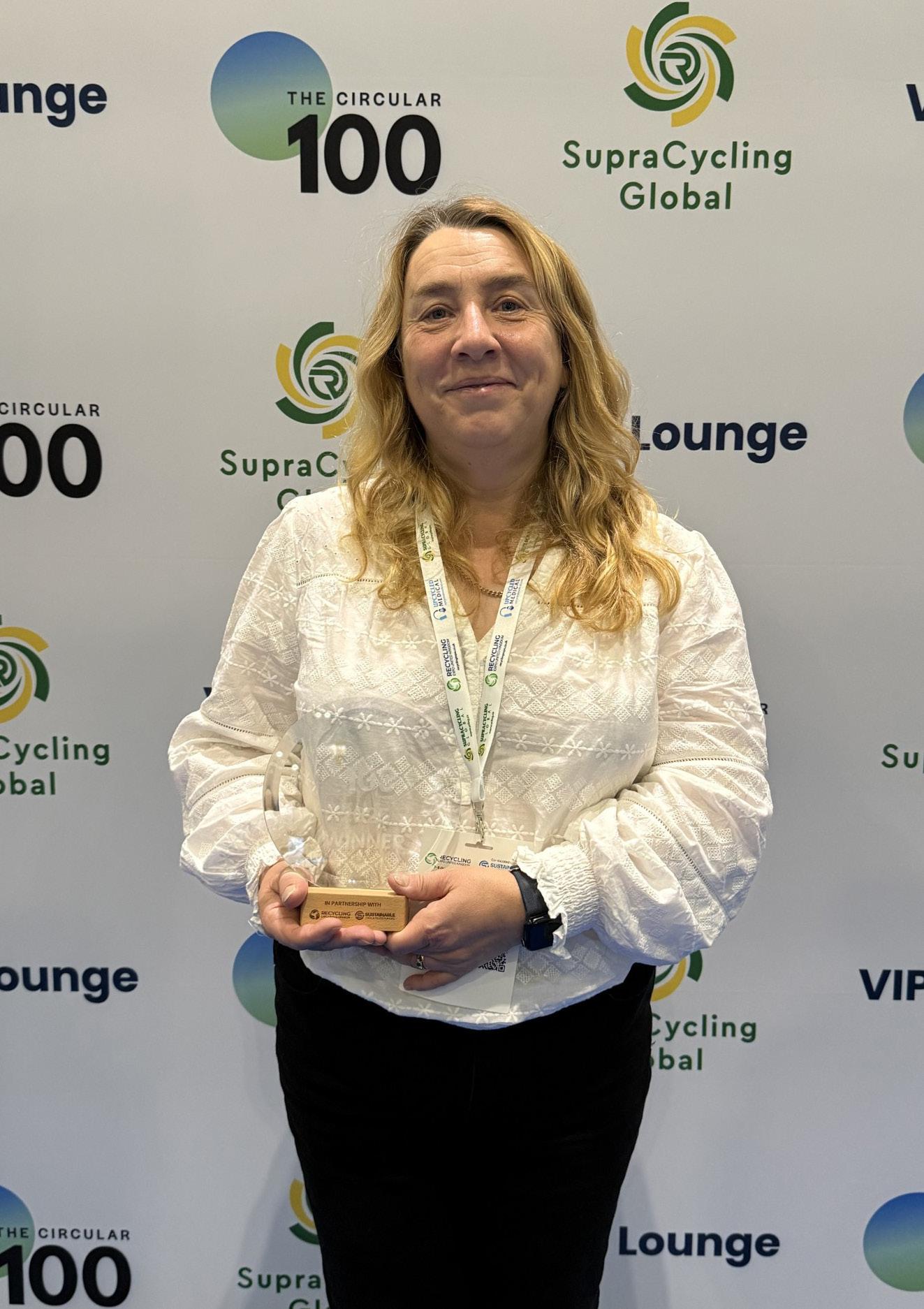
For Richard Deaville, sustainability isn’t just an environmental responsibility - it’s a business imperative. “A good sustainable business is a good business model,” he says. “It helps you manage risks, balance environmental, economic, and social factors, and prepare for future shocks. The more sustainable businesses are the ones that are ready and understand the impacts - from flooding to market disruption.”
At Balfour Beatty, Deaville has led a shift in mindset, embedding sustainability principles at the earliest stages of project development - a process known internally as “moving to the left.” “Getting involved earlier lets us identify opportunities sooner,” he explains. “That could mean reusing materials from structures we’re demolishing, or specifying sustainable alternatives like 100% recycled steel and other low-carbon materials.”
For Deaville, that proactive approach is what turns ambition into measurable progressreducing waste, improving efficiency, and strengthening resilience across large-scale construction projects.
He believes events like The Recycling Expo play an essential role in accelerating that collaboration. “It’s invaluable to bring everyone into one space - local authorities, waste managers, suppliers, and contractors - to identify barriers and work together,” he says. “It’s about opening up conversations on better materials, better ways of doing things, and promoting the agenda forward.”
Exploring the exhibition floor, Deaville says he’s been inspired by the innovation on show. “We’ve seen new products, new technologies, and new ways of thinking that can feed directly into what we do.”
His advice to those beginning a career in sustainability is grounded in realism and optimism:
Try everything that interests you,
don’t
be afraid of change, and keep your head. There’ll be setbacks, but take the learning and do better next time.
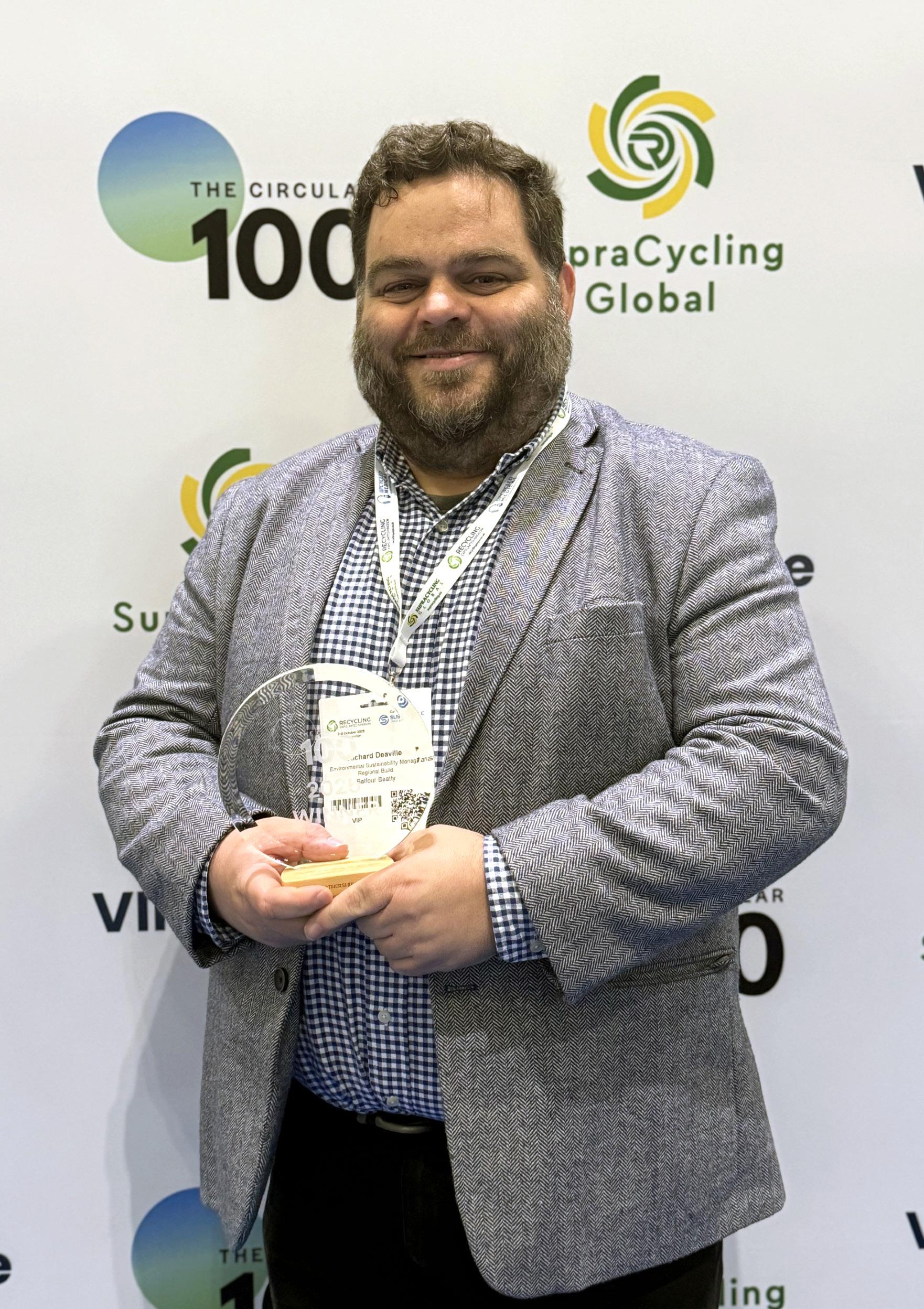
For Rory Capper, sustainability is the foundation for future-ready business. “It shouldn’t be treated as a standalone initiative,” he says. “Sustainability actions often get pigeonholed, but really they’re about laying the groundwork for growth and resilience. What starts as a sustainability project often ends up benefiting the entire business.”
At Bywaters, Capper has led the creation of a Scope 3 Carbon Calculator - a tool that tracks and allocates carbon emissions for each client based on real data. “Instead of relying on industry averages, we know which vehicle is collecting the waste, how far it travels, and what emissions are generated,” he explains. “That means our clients get an accurate picture of their true carbon footprint.”
It’s a tangible example of how sustainability and innovation intersect, transforming waste management into a precise, data-led service. “We’re not just managing materials anymore, we’re helping clients make measurable, evidence-based decisions,” Capper adds. He acknowledges that the sector faces major disruption. “Right now, there’s a lot of change in packaging legislation and material design,”
he says. “The challenge is adaptability, understanding what those shifts mean for recycling processes and infrastructure, and staying agile enough to respond.”
Events like The Recycling Expo, he says, are essential to that collaboration. “We’ve all been used to operating in a linear economy, but the circular model only works if we work together. Here, you can share problems and find solutions, sometimes even in the same conversation.”
His advice to emerging sustainability professionals is refreshingly real:
Don’t get disheartened. You won’t make it perfect the first time. It’s always two steps forward, one step back - develop, tweak, and go again. That’s how progress happens.
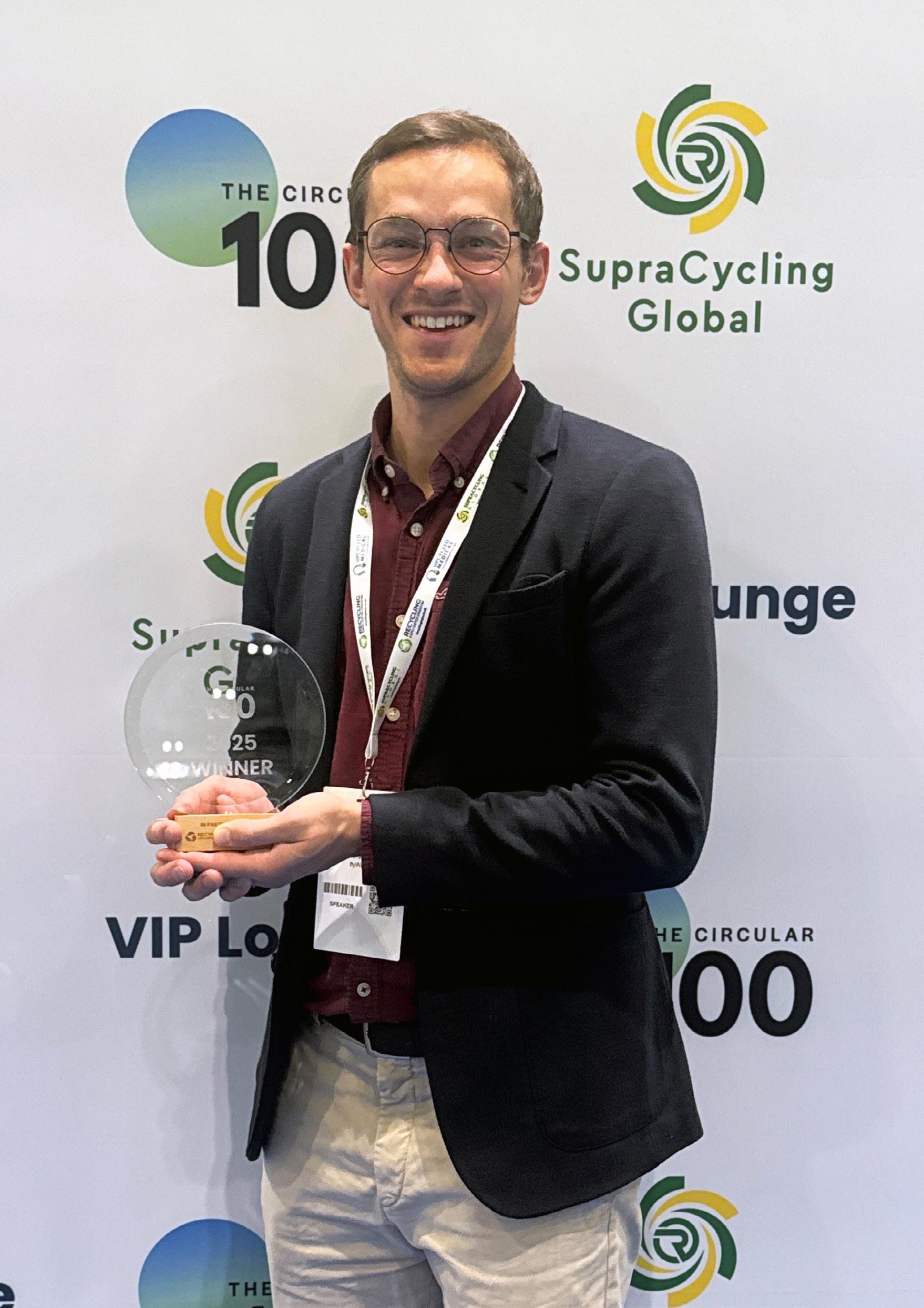

For Jasmine Norton-Lyons, sustainability isn’t a trend - it’s a prerequisite for longevity. “If you want your business to have any future, sustainability has to be front and centre,” she explains. “Consumers are more aware now, customers are more aware - if you’re not moving forward, you’re being left behind.”
If you’re not moving forward, you’re being left behind.
That awareness is showing up everywhere, from procurement processes to public perception. Jasmine has seen it first-hand while supporting bid writing and event operations. “Even in the festival industry, audiences expect brands to be doing the right thing and to prove it,” she says. “People are far more clued up; they can spot the difference between saying and doing.”
When previously working with Festival Republic and Live Nation, she pioneered the introduction of Eco Camps at the
Reading and Leeds Festivals, a sustainability initiative that encouraged attendees to camp responsibly, minimise waste, and return equipment for reuse. “At first, senior management weren’t sure it would work,” Jasmine recalls. “But sign-ups tripled year on year. It became a real success story, and even now, years later, it’s still running, though under a new name, The Meadow.”
That legacy embodies what Jasmine sees as true progress: small, practical steps that inspire behavioural change and endure beyond job titles or organisations. Her ongoing work at Grundon continues that same commitment - proving that with persistence and clear vision, sustainability can move from aspiration to operational reality.
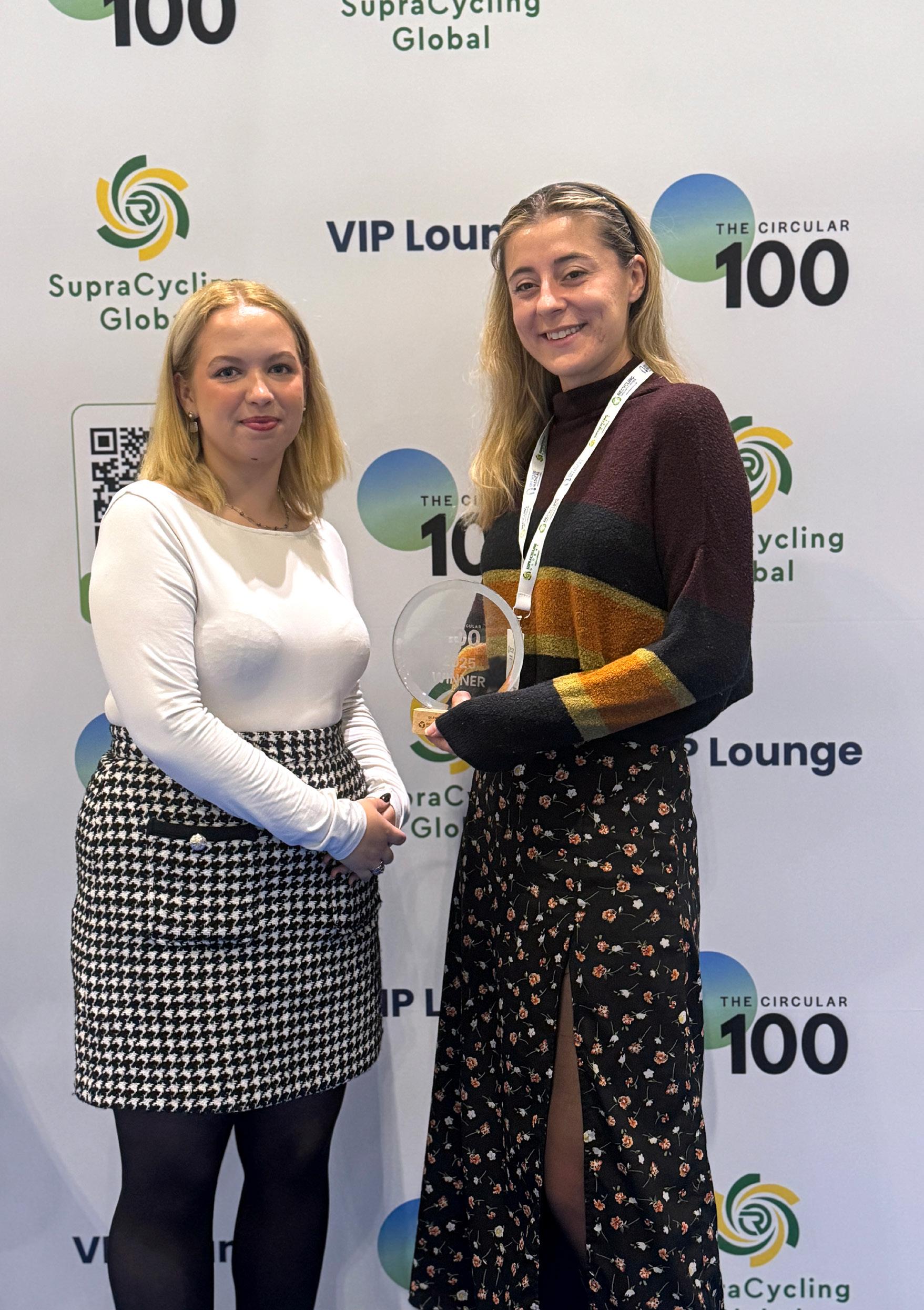
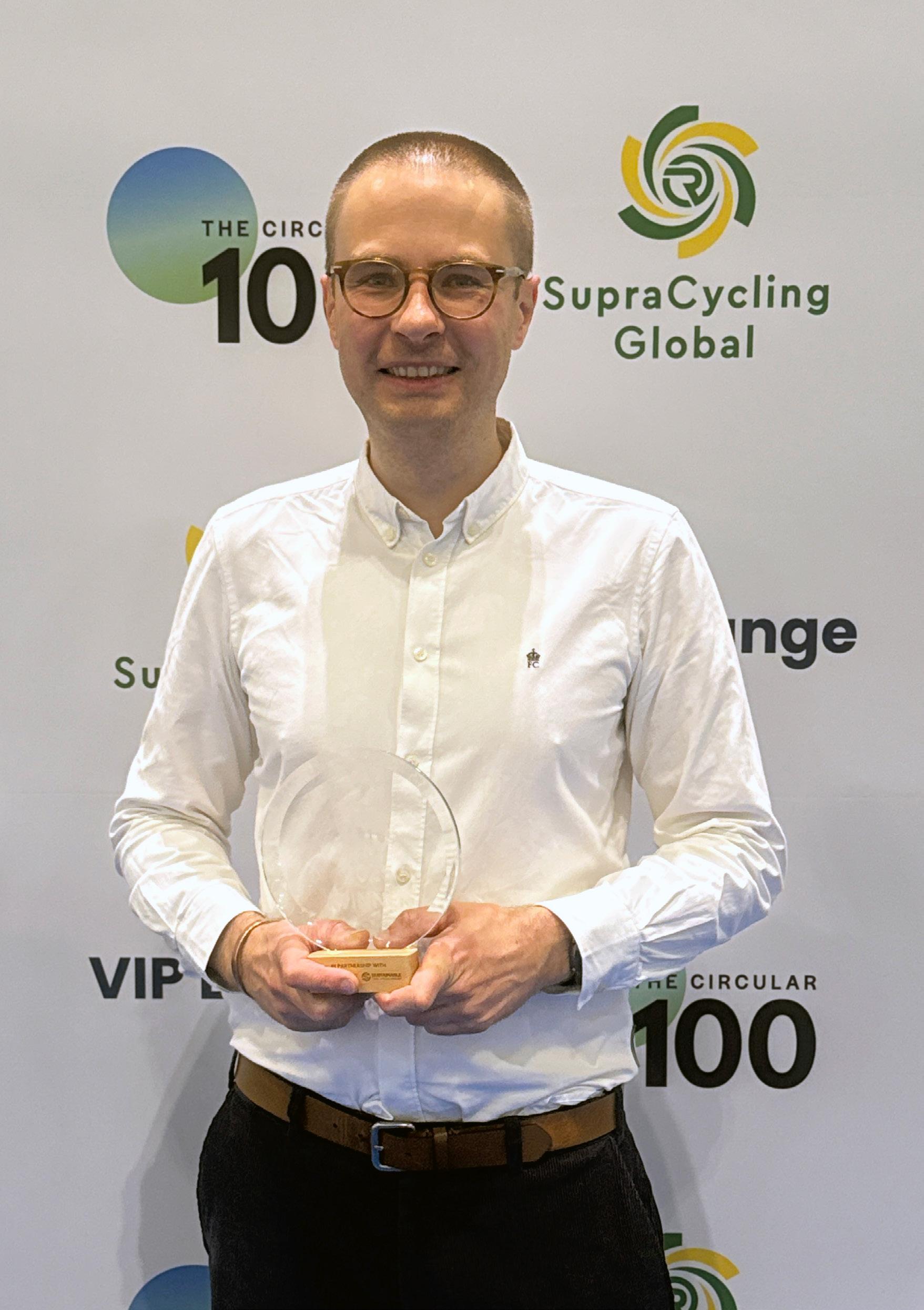
For Ben Stone, sustainability isn’t a cost - it’s an opportunity. “People often think being more sustainable means spending more money,” he says. “But sustainability, done right, drives efficiency, growth, and trust. It helps futureproof your business and builds resilience in a resource-constrained world.”
That mindset underpins Kier’s mission to “deliver infrastructure that’s vital to the UK in a sustainable way.” From upgrading flood-prone assets to helping water companies adapt their treatment works to climate change, Stone sees sustainability as integral to both purpose and profit. “Our opportunity,” he explains, “is to help the UK transition - and to do it in a way that makes good business sense.”
Since joining Kier Group, Stone has overseen a strategic refresh grounded in a double materiality assessment - analysing what matters most to employees, clients, and investors. “The most rewarding outcome was our business case for a Sustainability Literacy Plan,” he says. “We learned that our people want to do more, they just need the knowledge and confidence to act. We’re embedding those
skills across our workforce and supply chain so everyone can come on the journey with us.”
Kier’s biggest challenge, he says, lies in circularity and retrofit. “The UK has a lot of aging infrastructure, Victorian bridges, reservoirs, and assets that weren’t designed for extreme weather. The challenge is upgrading them using low-carbon materials and making sure they’re fit for the future.”
Reflecting on The Recycling Expo, Stone praises the event’s focus on innovation. “I’ve had conversations with people developing low-carbon cement that absorbs carbon emissions, exactly the kind of collaboration we need.” His advice to young professionals is simple:
Get your boots on the ground. Construction sustainability is hands-on — learn by doing, not just studying.
For Hazim Bidiwi, sustainability begins with collaboration. “From a business perspective, it’s about meeting our clients’ expectations while responding to growing demands from the wider supply chain and the people who use the spaces we create,” he explains. “They’re asking for healthier, more efficient, and more sustainable environments - and we want to deliver that by working collaboratively with everyone involved.”
At McLaren Group, Bidiwi has focused on raising awareness across the company’s projects and stakeholder network. “I’m proud of the progress we’ve made in informing clients and partners about the challenges our industry faces and how we can overcome them together,” he says. “We come in with innovation and energy, but also realism about the barriers we need to tackle. The key is to keep bringing sustainability into everyday thinking, across all teams and supply chains.”
For him, success isn’t just measured in technical achievements but in cultural change - embedding sustainability into conversations, decisions, and values. That, he believes, is how meaningful progress takes hold.

His advice to the next generation of sustainability professionals reflects both
Don’t lose your energy and enthusiasm,” he urges. “People in construction value it - but remember to listen as much as you speak. Understand the challenges deeply, keep engaging, and don’t lose your fire. What we’re doing is for the greater good.
At its heart, Bidiwi’s message mirrors McLaren’s own philosophy, that the path to a sustainable future is built through shared understanding, consistent collaboration, and the courage to keep pushing forward.
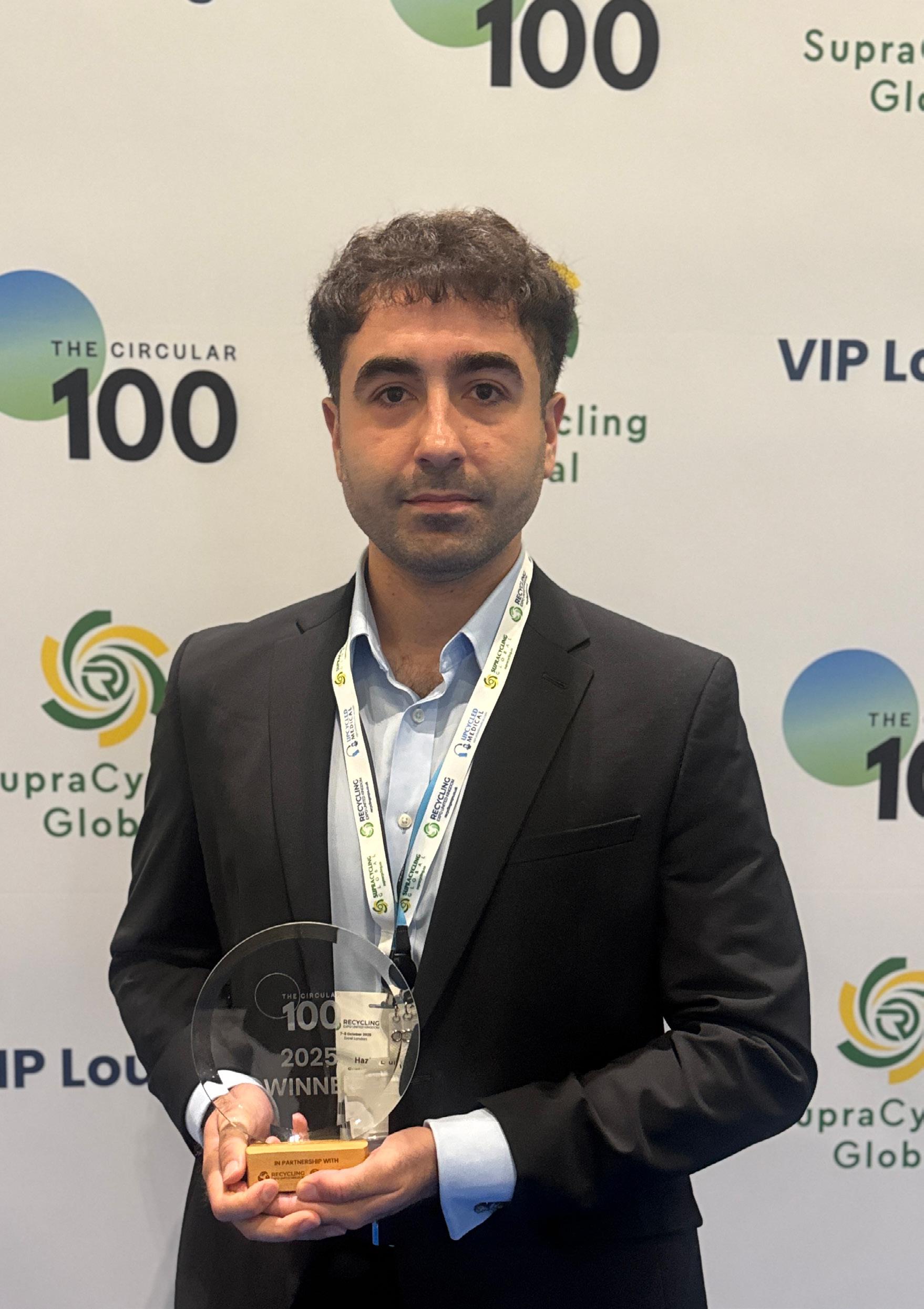
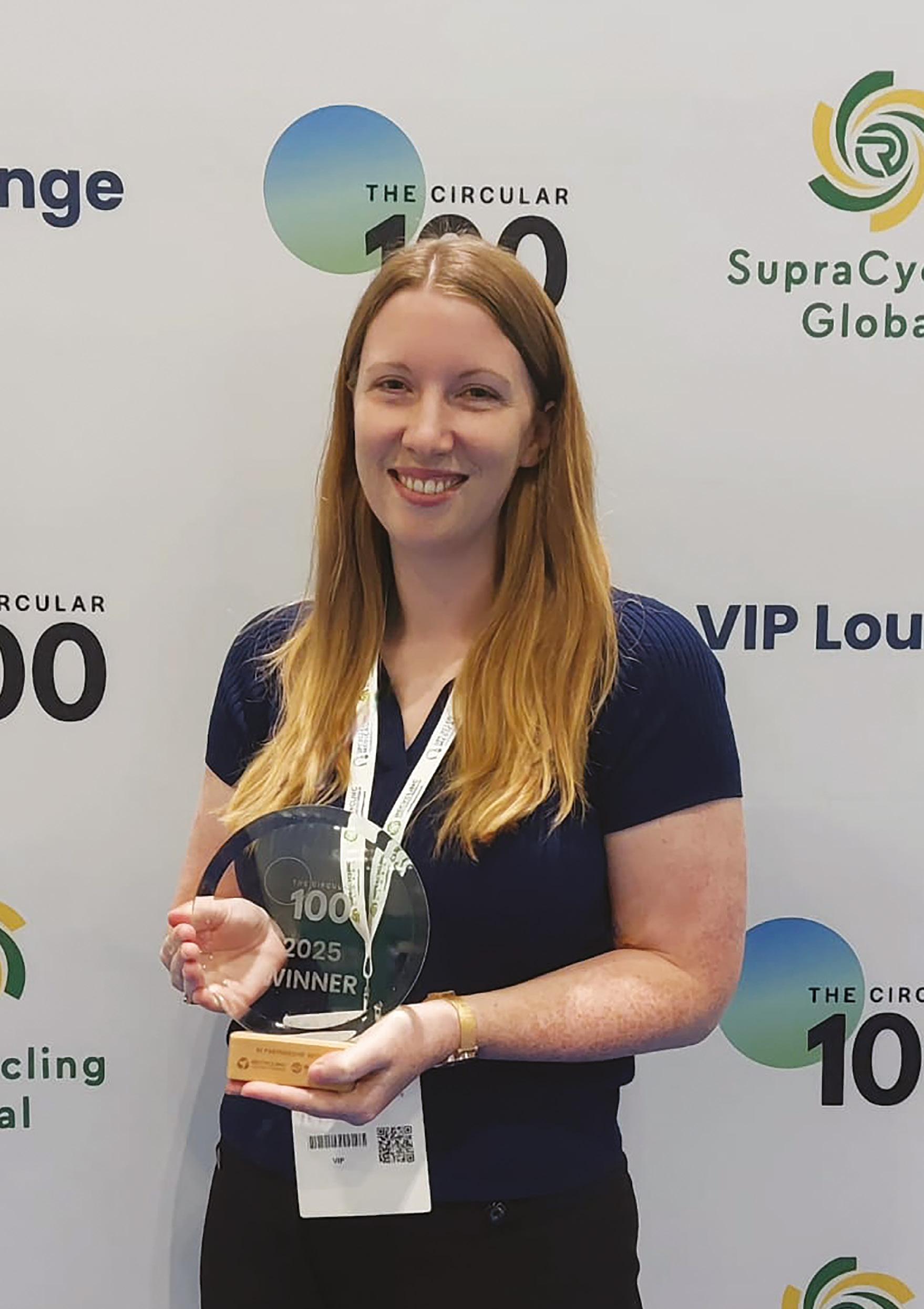
For Lynn Burden, sustainability is more than good practice, it’s leadership in action. “Beyond the ethical and moral reasons, being at the forefront of sustainability means being a leader in your industry,” she says. “If you innovate, you not only support your business but set a positive example for the wider sector.”
At Mace, Burden has been driving forward pioneering work on material banks, a system designed to catalogue, store, and reuse materials across projects. “I started exploring the concept within our interiors and health sector projects,” she explains. “On major builds, we often focus on big-impact materials like concrete and glazing, but smaller packages can collectively have just as much influence.”
That initiative, she says, has already moved from trial to business-as-usual. “We’ve proven it can work, and it’s now being written into contracts across all our projects. Seeing that lasting impact across the business is incredibly satisfying.”
Burden also highlights two ongoing industry challenges: accurate measurement and plastic reduction. “You can’t improve what

you can’t measure,” she notes. “We’ve built an online reporting system to reduce human error and better manage performance. But singleuse plastics remain a frustration, there’s still confusion and limited options for true recycling or remanufacturing.”
She believes collaboration is the only route forward. “Events like The Recycling Expo are invaluable for hearing different perspectives and working across industries. We might think an idea works in isolation, but without wider collaboration, we can’t know if it truly does.”
Her advice to emerging sustainability professionals is simple but actionable:
Get involved and stay inquisitive. Go on site visits, find mentors, attend events, and engage wherever you can. The more you see, the better you’ll understand where you can make real impact.studying.
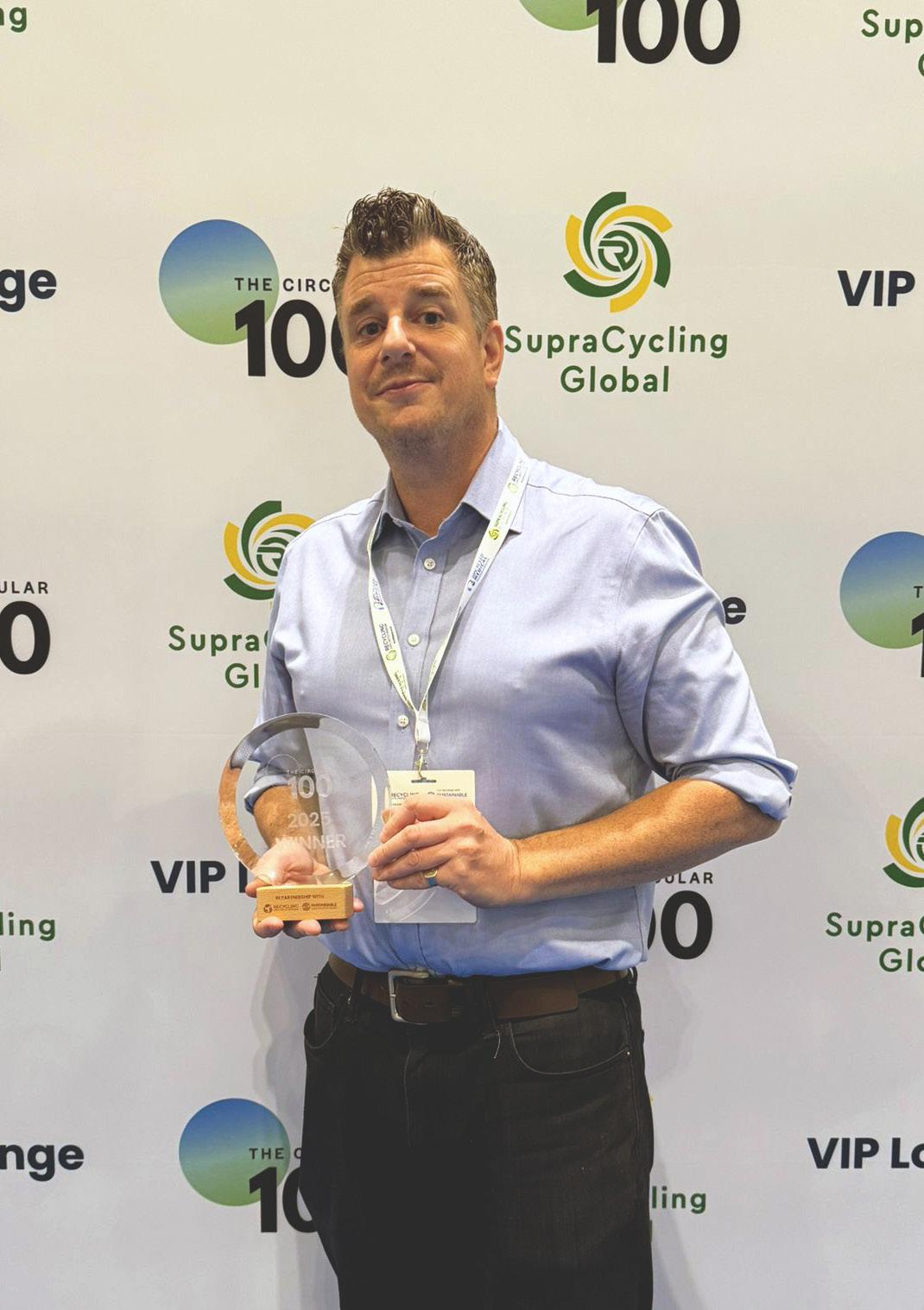
For Greg Lucas, sustainability is inseparable from IKEA’s purpose and vision, “to create a better everyday life for the many people.” It reflects what our customers, co-workers and society is asking of us every day. It drives innovation, shapes product design and I work to integrate our strategy into every part of our business and beyond.
Greg believes that people are at the heart IKEA UK&IE’s journey. “People are at the front of our sustainability strategy” he explains “collaboration and taking action are essential to create a movement around the topics that deliver significant social, environmental and business impact and to offer solutions that are affordable and accessible to the many people.”
Across UK retail, the challenges are complex and interlinked. “There’s been a huge amount of progress,” he says, “but many dilemmas remain, especially as we move closer to the 2030 climate goals.” He points to industrywide initiatives such as the British Retail Consortium’s Climate Roadmap, which provides a shared platform for collaboration
and accountability. “As recycling rates improve, we have to think beyond waste bins, about preventing waste altogether and driving material circularity across the whole sector.”
For Greg, The Recycling Expo plays a crucial role in advancing that systems-level conversation. “The challenges are systemic — no single stakeholder or policy maker can solve them alone,” he says. “Bringing everyone together here is essential. The only way we’ll accelerate a circular economy is by doing it together, across business, policy, and society.”
He leaves future sustainability professionals with three guiding principles:
Stay passionate, stay resilient, and stay curious. Keep learning — because this field changes faster than almost any other.
Steve Prichard Director aecom
Laura Purnell Sustainability Program ManagerCircular Economy Amazon
Oonagh Kavanagh Group Commercial Manager Axion Polymer
Richard Deaville Environmental Sustainability Manager Regional Build Balfour Beatty
Alex Hilton Director of Policy & Public Affairs Beyondly
Simon Rutledge Sustainability Manager Biffa
Rory Capper Head of Sustainability & Innovation ByWaters
Phil Korbel Co-Founder Carbon Literacy Project
Aidan McGeary Managing Director Blue Machinery
Sarah Cairns Head of Governance Boots
Brian McCabe CEO Beauparc Group
Breffni Quinlivan Environment & Sustainability Director Costsain Group
Trevor Berry Environment Sustainability Manager DPD UK
Laura Fernandez Senior Packaging Sustainability Manager Currys/Ocado
Sabina Nedelciu Sustainability Director DS Smith
Emma Beal Circular Economy Activist Circular Economy Activist
Emma Woolley Sustainability Director Decathalon
Mark Garrett Managing Director ClearPoint
Sarah Webster Director of Sustainability Britvic
Robbie Stainforth Director Ecosurety/Talking Rubbish
Dain Son Sustainability Manager Deloitte
Helen Murphy Head of Sustainability Cory
Natalie Bean Head PR&Partnerships Depop
Veronika Lundberg Circular Economy | Partnership Manager Ellen McArthur Foundation
Helena Jackson Waste Prevention Manager ELWA
Chris Sheppard CEO EMR
Ben Saunders Commercial Director Enva
Gerard Gallagher Global Sustainability Lead EY
Justin Keeble Managing Director of Global Sustainability Google Cloud
Matthieu Sabin Global Category - Sustainable & Circular Solutions HP
Paul Rhodes Head Of Sustainability Greggs
Mikela Druckman CEO Grey Parrott
Paul Taylor CEO FCC Environment
Zoe Lenkiewiz Founder Global Waste Lab
Ben Stone Group Head of Environmental Sustainability Kier
Christina Shim Chief Sustainability Officer IBM
Greg Lucas Sustainability Manager IKEA UK
Jasmine NortonLyons Sustainability Advisor Grundon Waste Management
Conchita Jimenez-Gonzalez VP, Head of R&D EHS & Sustainability GSK
Claire Le Masurier Sustainability & Corporate Responsibility Senior Manager, KPMG KPMG
Lindsey Spiller Sustainability Manager Lang O’Rourke
Frazer Wardhaugh Director Inch Cape Offshore Limited
Traci Corrie Group Head of Sustainability & Ethics JD Sports Fashion plc
Lynne Burden Associate Director Sustainability Mace
Felix Michael Webber CEO MBA Polymer
Hazim Bidiwi Sustainability Manager mclaren group
Jack Hardman Ecommerce Head Lucy & Yak
SophieWalker Head of events Lush
David Frank Director Policy Engagement in the Global Energy, Connectivity & Sustainability Policy Team Microsoft
Jason Roberts Group Director for Sustainability and Social Value Mitie
Timothy Clement Director of Social Value & Sustainability morgan sindall
Andrew Gomarsall Executive Director N2S
Rachel Pearson Head of Sustainability National Highways
Parmjit Flora Sustainability Programme manager Ocado
Olivia Taylor Chief Sustainability Officer Octopus Energy
Adrian Stevenson CSR&Sustainability Lead River Island
Graeme Hannah Director of Sustainability and Social Impact Robertson Group (Holdings)
Peter Collins Head of Operationsr PACK UK
Daisy Thompson Sales Sustainability Lead Nestlé UK
Holly Teschner Sustainability Manager Network Rail
Simon Richards Sustainability Director Sir Robert McAlpine
Chris Baggley Materials Director Sortera
Sophie Maqsood Sustainability and Environment Officer Royal Botanic Kew Gardens
Matt Penrose Recycling & Sustainability Manager Recorra
Paige Hunt Sustainability Manager Sainsburys
Stuart Foster CEO RECOUP/Oakdene Hollins
Rhys Crowther Sustainability Manager Southbank center
Sam Moss Founder Stocked Food
Pete Statham Head of Sustainability Sysco
Sean Walker CEO TANA UK
Nic Gorini CEO Spin Ventures
Aurelie Herve Marketing Director Sealed Air
Natalie Gee Senior Commercial Director Stericycle
Nicola Jones Steel Packaging Recycling Manager Tata Steel
Stuart Muir Lead Sustainability Manager Tesco
Joseph Branscombe Marketing Manager Timberland
Alan Wheeler Founder NTRA
Natalie Marques Head of BrandSustainability Trainline
Beril Yesilirmak Technical Director Vanden
Adrian Hawkes Director of Policy Valpak
Julia Wetstein Zero Waste Director Vegware
Florian Vernay Head of Communications, Corporate Affairs and Sustainability, Home Care Business Group Unilever
Gavin Anderson Head of Policy & Stakeholder Engagement Veolia
Linda Ball CEO UpCycled Medical
Kevin Bradshaw CEO Viridor
Denise Mathieson Head of Packaging Waitrose
Mike Ward Managing Director Ward Recycling
Peter Hunt Managing Director Wastecare Group
Michael Cross Sustainability Director wilmott dixon
Martin Overfield Director winvic
Adam Herriott Senior Specialist WRAP
Sarah Ivory Environmental and sustainability manager whitbread
Ana Nicula Responsible Sourcing & Sustainability Manager Whitbread Group
Paco Hevia CEO Thalia Waste Management Ltd
Louise Grantham CEO Ecogenrsys
Pankaj Chowdhary CEO Ekman Group
Andy Laight Wiltshire Group Director Gap Group
Amy Bird CEO Women in Recycling
Dr Adam Read MBE Chief Sustainability & External Affairs Officer SUEZ Recycling and Recovery UK